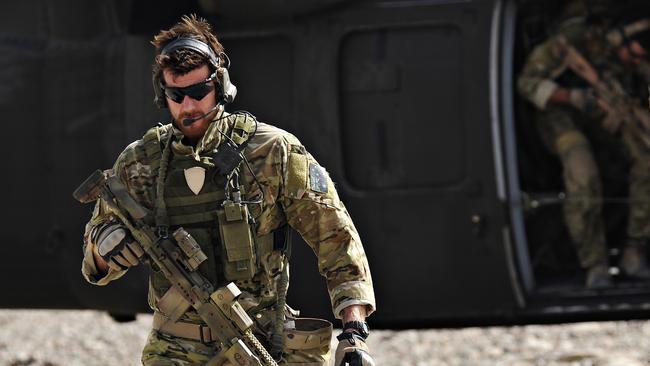Ben Roberts-Smith backer Kerry Stokes must hand over secret documents
Billionaire Kerry Stokes is ordered to hand over details of his agreement with Ben Roberts-Smith to bankroll the VC recipient’s $25m defamation case.

Billionaire media mogul Kerry Stokes must hand over documents that could reveal more details of his agreement with Ben Roberts-Smith to bankroll the Victoria Cross recipient’s defamation case, as he fights an application by Nine newspapers to pay a share of the $30m legal costs.
On Wednesday, Justice Anthony Besanko ruled in the Federal Court that Mr Stokes’s private company, Australian Capital Equity, and the Seven Network must produce correspondence between the companies and their lawyers, as well as records of attendance by the lawyers at the trial.
Mr Stokes is fighting an application by the newspapers for ACE and his majority-owned Seven Network to pay a share of the costs in the failed defamation action, after Justice Besanko last month ruled that several allegations of war crimes against Mr Roberts-Smith by Nine newspapers were substantially true.
Justice Besanko found Mr Roberts-Smith had murdered unarmed detainees, including a farmer kicked off a cliff in the village of Darwan and a one-legged man dragged from a tunnel at the compound known as Whiskey 108.
Mr Roberts-Smith resigned from his executive position at Seven West Media shortly after the verdict.
Mr Stokes funded Mr Roberts-Smith’s case, first through Seven West Media – a publicly listed company – before transferring the liability to his private company.
Last month, Mr Roberts-Smith agreed to pay the costs of the case but is unlikely to be able to stump up anywhere near the estimated $30m in combined legal fees.
The newspapers are seeking costs on an indemnity basis, which cover a much higher proportion of a successful party’s costs in cases where, for example, the losing party has rejected a reasonable offer of settlement.
The Australian revealed last month that Mr Roberts-Smith rejected several offers to settle the case, including at least one that would have let him walk away with only his own costs to pay.
The newspapers are seeking to show that ACE and/or Seven Network exerted some control over the management of the defamation case.
On Wednesday, Justice Besanko found that the subpoenas sought by Nine were not a “fishing expedition” but had a legitimate forensic purpose.
The Seven Network had claimed there was nothing surprising about the fact that it would wish to follow the conduct of the trial as it involved a senior executive of the company, and it was a news organisation reporting on the proceedings.
However, the newspapers argued that “the inference that might be drawn about a third party’s involvement in a proceeding might be different if they were in attendance at court on only one day, as compared with the inference that might be drawn if they were in attendance at court on every day of the 110 days of the hearing.”
They also pointed to clause 7 of a letter from ACE when it took over the liability from Seven, referring to “the continued oversight and management by Seven Network’s legal team”.
“It is likely that (the newspapers) will at the appropriate time place significant weight on clause 7 of (Mr Roberts-Smith’s) agreement with ACE,” Justice Besanko observed. Claims of legal professional privilege could be determined “if and when a claim of privilege is made”, he said.
“The part played in the litigation by Seven Network and ACE is undoubtedly relevant to the third party costs application, although it is but one factor,” Justice Besanko ruled.
“No doubt a direct instruction from one of those parties to (Mr Roberts-Smith) about the conduct of the litigation might be the best evidence of direct and active involvement.
“In my opinion, the subpoenas should be confined in the manner indicated … they reveal a legitimate forensic purpose,” he said.







